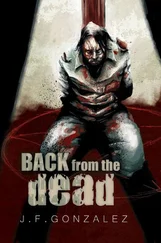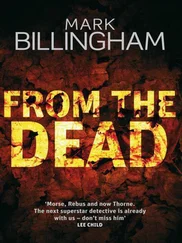“Have you tried complaining to his superiors on New London?”
“Sure,” Li-Tsan said. “We all have. We’ve inundated them. I’ve sent two complaints a day. But guess what. It all goes through Gibb, and he still has the authority to declare us essential to the effort here. And besides, New London isn’t eager to ask its projects elsewhere to trust people who’ve already proven themselves incompetent at previous assignments. The way they figure it, Gibb’s justified in keeping us in limbo, and we can sit out the remaining years of our contracts getting as irate about the injustice as we like.” She rolled her eyes. “Of course, it’s different now that he needs a scapegoat.”
“Would this be why you show your hatred for Mr. Lastogne?”
“He supports what Gibb’s doing to us, which makes him a piece of shit.”
Normal shit, this time. I turned my attention back to Fish. “So you were confined here, alone, for more than a year before Li-Tsan showed up. That sounds cruel.”
Fish didn’t look up. “It wasn’t exactly solitary confinement. I received visits.”
“From anybody in particular?”
“Anybody who felt sorry for me, or wanted a break.”
“How many would that include?”
“Everybody took breaks. Not everybody made the trip just to visit me.” Fish allowed herself the kind of smile that reeks with intense self-loathing. “I wasn’t in-habitat long enough to make friends.”
“Except for Mr. Gibb.”
“I wouldn’t call him a friend, exactly,” Fish said.
“He got you the job. What would you call him?”
“Had it worked out, a mentor.”
“Did he ever visit you, after your exile?”
“I saw him whenever he took leave.”
“Did you ever talk about your situation, on those occasions?”
“I begged him to transfer me.”
“And?”
“He said we’d talk about it if I met him at Hammocktown.”
Mr. Gibb, I decided, was a bastard. “Even with Gibb’s people taking regular leaves, you must have been alone most of the time.”
“Yes.”
“Doing what?”
“Not much. I helped edit the reports our people sent to New London.”
“You had access to hytex transmission?”
“Yes. For more than a year I handled all the mail back and forth.”
“Send anything unauthorized?”
Fish’s eyes flared. “Like what?”
“There have been some unusual messages recently.” My hate mails.
She showed no interest in the details. “Oh, recently. Well, I’m sorry to disappoint you, Counselor, but recently—as in the last year or so—all of our transmissions go through Gibb and Lastogne. He took that job away from me when he banished Li-Tsan.”
I had trouble believing either Gibb or Lastogne responsible for the messages I’d received. I had no problem believing them capable of malice, but that particular kind seemed contrary to their style. “Did he have any problems with the job you were doing?”
“No. He made sure I knew he thought I’d done all right. But he still insisted on handling all the correspondence from then on. I think he just wanted to make sure we wouldn’t say anything he wouldn’t be able to deny.”
“Like what?”
“I don’t know,” Fish said.
“Neither do I,” said Li-Tsan.
Something was being hidden, here. “What would you think if you had to speculate?”
D’Onofrio jumped in. “One One One’s a very precarious situation, Counselor. We’re dealing with issues of tremendous sensitivity, in the face of an alien government that has permitted us no diplomatic status at all. The wrong word, spoken at the wrong time, can jeopardize everything we’re trying to do. Maybe we had a close call, and New London told Mr. Gibb he had to take on greater personal responsibility.”
Or maybe they’d had prior incidents with hate mail, and sending everything through the boss was the only way to make sure it didn’t happen again. “But you’re the one who said Mr. Gibb’s afraid of having to deny something. What would he have to deny?”
“I don’t know,” Fish said. “Honestly.”
I let it pass. “All right. So he took away your job as correspondence officer, and left you playing innkeeper to personnel on leave.”
“And inventory officer. It wasn’t that bad. We needed somebody here to keep track anyway.”
“And that couldn’t be done by onboard systems?”
“Onboard systems can be hacked.”
“Gibb said that. So what was he frightened of, exactly? Weaponry?”
“Luxury items. Stimulants. Personal belongings. High-tech not allowed in the habit under our contract with the AIsource.”
“Anything capable of sabotaging the lines of Santiago’s hammock?”
“We have some plasma knives,” Fish said, “but nothing that’s gone missing. That was the first thing we checked.”
“We being your little group?”
“Not just us. The Porrinyards supervised, and Mr. Lastogne double-checked. They found no irregularities.”
“I’ll check on that.” I would, too, but doubted I’d find anything pivotal. Anybody capable of hacking the inventory would have covered himself too well to leave evidence vulnerable to a cursory inspection from the likes of me. Thinking furiously, rejecting half a dozen possible lines of further inquiry, I settled on the one that had proven best at enflaming the emotions of everybody I’d met so far. “What can you tell me about Warmuth and Santiago?”
The three height-sensitives greeted this little inquiry with the same enthusiasm they would have reserved for an unexploded bomb. They glanced at each other, came to the shared conclusion that this looked suspicious, glanced back at me, came to the shared conclusion that this looked furtive, and looked away, coming to the shared conclusion that avoiding eye contact was just as bad as all their other options. All this happened in about two seconds, and left the three of them with no safe place to focus.
It was Li-Tsan who decided that frankness was the best of a long list of bad options. “Santiago was a bitch and a half.”
“She wasn’t unpleasant,” Fish said, “not in the way that some of the others were… but she was anything but friendly.”
“She was a bitch and a half,” Li-Tsan repeated. “Yeah, she never actually mocked us, and she never did anything we could nail her for… but as far as attitude went, she was the worst. The times she spent here, she just spent inside one of those sleepcubes, refusing to say a word to us, coming out only to eat. Everything she said, everything she did, let us know she thought we were worse than garbage.”
“I didn’t like her, either,” D’Onofrio said. “But I didn’t think the way she treated us had anything to do with us being height-sensitives. I asked around, whenever I saw any of the others, and they all said pretty much the same thing: that she treated everybody that way. She said what she had to say and she did what she had to do, and she turned her back as soon as she decently could.”
“And Warmuth?” I asked.
Li-Tsan spat. “She was worse. She kept visiting us to see if we were all right .”
There was the anger again. Deep, poisonous, and undiluted, making Warmuth the central focus in everything that had gone wrong in her own term of service. “And you resented this?”
“You must have heard by now. She was an empathy addict. There was nothing special about being befriended by her. She only sought out vulnerable people because it gave her a charge.”
“Yes, I’ve heard that. But wouldn’t that be hard to distinguish from genuine compassion?”
“Genuine compassion,” Li-Tsan said, “doesn’t leave you feeling like you’re being used. It doesn’t leave a bad taste in your mouth. It doesn’t make you feel worse than you would if you had to go without it.”
Читать дальше












